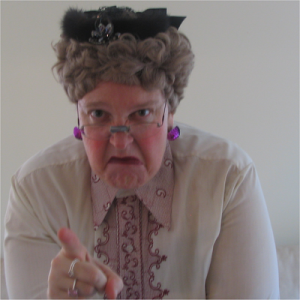Today I was speaking with some youth worker’s about the state of our profession in Australia and what is holding us back. One of the reasons which was put forward was that some people in the field struggle to implement solid boundaries. As we spoke about our respective youth work studies it became apparent that one area that was severely lacking was ethical boundary setting.
Throughout my career I have seen youth worker’s struggle along the spectrum of boundary setting from the laissez faire to the severely strict. Each part along the spectrum has its positives and its negatives so lets have a look:
laissez faire
The laissez faireyouth worker is everyones friend. They know everything about their young people and wear their heart on their sleeve. These youth worker’s will often work overtime, rarely refer on to other agencies and struggle with the idea of confidentiality. The laissez faire youth worker has unprecedented access to the young people and is seen as the cool worker, or the one who understands them the best. Initially these youth worker’s are praised for going above and beyond but eventually they are seen as just being to close to the young people.
The severely strict
This youth worker is seen as cold and calculating and has fixed unwavering boundaries. The young people they work with have given up so much information while the youth worker has deflected any questions of a personal nature. The youth worker uses “boundaries” as an excuse to not be personable. This type of worker is seen by the young people as the cranky mother type or the angry old man. The youth worker expects conformation to their rules… all of which are aimed at regulating the behaviour of young people. The severely strict youth worker will admonish you when you ask about their family or where they live. Their colleagues see them as distant and to involved in the work rather than the relationships.
The Balanced Youth Worker
The balanced youth worker has boundaries which are set but flexible for individual situations. These workers are clear about what they are not willing to do with a young person and flexible with how much they are willing to do within the remaining purview. These youth workers are seen by their colleagues as providers of individual services to individual young people. With some young people their boundaries are solid and with others they are somewhat looser. These youth workers are able to articulate why they are setting the boundaries where they are and what outcome they expect from setting them there. The balanced youth worker gives of themselves to build relationship but does not share it all. They are not guarded but are wary of not placing their burdens on the young people they work with.
These are just three of the possible points on the spectrum and are not an exhaustive list however it gives you a framework for judging where your practice lies.
What other characteristics can you think of???










1 Comment
[…] youth work theory and practice. What is the central theoretical framework for youth work practice? We would argue RELATIONSHIP. We know this is contentious and we will get some negative feedback, but we develop our […]
Comments are closed.